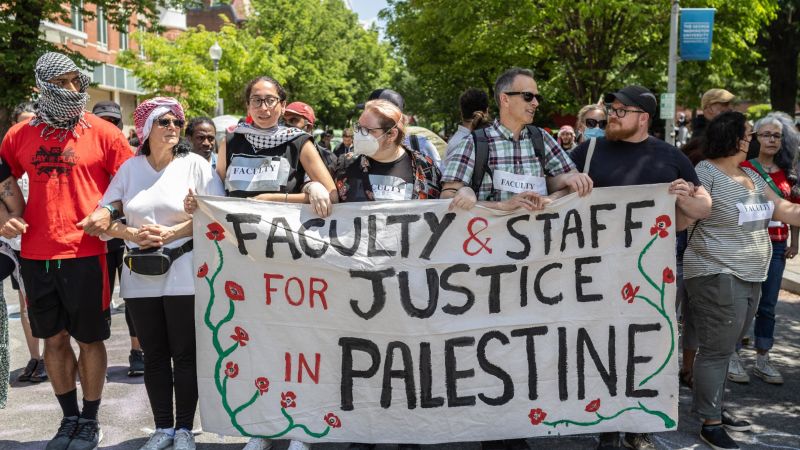The Department of Buildings granted an upscale Brooklyn hotel permission to keep operating last month despite a judge ruling its zoning improper — a potential crisis-averting move that came after the hotel’s owner lobbied a top aide to Mayor Adams and hired his former chief of staff to argue its case in court.
The situation revolves around the Moxy, a new hotel in Williamsburg owned and operated by Lightstone Group, a prominent real estate firm.
Brooklyn Supreme Court Justice Robin Sheares ruled March 2 that the underlying zoning agreement that allowed Lightstone to build the Bedford Ave. hotel was improper because it included neighboring lots whose owner hadn’t agreed to have his property be part of the development.
Nonetheless, the Moxy was able to open March 7 as it had received a temporary certificate of occupancy from the Department of Buildings before Sheares’ ruling, city records show. That certificate had a May 30 expiration date, setting the stage for Lightstone to face serious problems in light of the judge’s ruling.
Within days of the Moxy’s opening, Lightstone retained Frank Carone — who had resigned as Adams’ chief of staff less than three months earlier — as its lawyer as it began appealing Sheares’ decision, court filings reveal.
:quality(70)/cloudfront-us-east-1.images.arcpublishing.com/tronc/HGTD5FDTAJGTJHY7MMDDYHRZQA.JPG)
Carone, who has since leaving City Hall also taken on the job of running Adams’ reelection campaign, sent Sheares a letter on April 19, urging her to expedite a request from Lightstone to reargue the case, citing the business impact her ruling could have on the developer.
“[Lightstone] has partnerships with several large corporations, providing accommodations not only for tourists to the area, but also to athletes who play at Barclays as well as employees who travel to the area for work,” Carone wrote to Sheares. “Losing a portion of the hotel, which results in the loss of dozens of hotel rooms that have already been booked, will cause irreparable harm to the reputation of [Lightstone] and its hotel.”
Carone asked Sheares to rule on Lightstone’s motion for new arguments at a May 25 hearing.
:quality(70)/cloudfront-us-east-1.images.arcpublishing.com/tronc/QI5AAPIP5BDMBIHRWPJD4YKIW4.JPG)
While Carone advocated for Lightstone in court, Menashe Shapiro — Adams’ deputy chief of staff who used to report directly to Carone in the City Hall hierarchy — was in touch with Buildings Department officials about Lightstone’s Moxy zoning issues, according to two real estate industry sources familiar with the outreach.
In addition, from January through the end of March, Patricia Lynch Associates, a government relations firm, was listed in City Clerk’s Office records as lobbying Shapiro directly on behalf of Lightstone as part of a contract focused on municipal “agency activities,” among other issues.
Shapiro declined to comment this week.
Asked if any conversations had taken place between Shapiro and the Buildings Department, Adams spokesman Charles Lutvak did not answer directly, only saying, “We do not comment on private conversations.”
Meantime, Carone spokesman Stu Loeser said the ex-chief of staff has “never communicated” with Shapiro, the mayor or anyone else in the administration about the Moxy matter. As a recently departed city official, Carone is barred by ethics law from lobbying the mayor’s office — defined as “communicating for compensation” — until January 2024.
:quality(70)/cloudfront-us-east-1.images.arcpublishing.com/tronc/SWAZH66XT5G7DLSCOJ5PVIYNXI.jpg)
Sheares didn’t act on Carone’s letter request for a May 25 decision on the reargument motion, but the Buildings Department took action that day — giving the Moxy a new temporary certificate of occupancy allowing it to keep operating through Aug. 23, agency records reviewed by the Daily News show.
The new certificate, issued just five days before the Moxy’s old clearance expired, was signed by Adams’ newly minted Buildings Commissioner Jimmy Oddo and Brooklyn Borough Commissioner Reda Shehata.
The dispute over the Moxy revolves around a disagreement between Lightstone and a neighboring property owner.
Jack Gold, a rep for the property owner Sheares ruled did not consent to Lightstone’s zoning plan, questioned why the May 25 temporary certificate was issued. He shared a May 2022 letter with The News sent to his team by Scott Pavan, a borough commissioner at the Buildings Department’s Development Hub, stating that the agency “will not issue a temporary or final certificate of occupancy [for the Moxy] until the audit is resolved.”
Pavan also wrote in the letter that the department would defer to courts on the legality of Lightstone’s zoning.
:quality(70)/cloudfront-us-east-1.images.arcpublishing.com/tronc/GY4HYOFRNJAQ7GROFEEIV6UP4U.JPG)
The “audit” referenced by Pavan is a review the department launched into whether it would need to revoke Lightstone’s permits for the Moxy after Gold first raised the zoning concerns in court.
City records show that audit remains ongoing, and Sheares has not issued any more rulings since invalidating Lightstone’s zoning in March. In addition, a Department of Buildings code pamphlet states temporary occupancy certificates “may not be renewed” in the event that “outstanding issues” for a permanent certificate “have not been completely resolved prior to the expiration date.”
Given the backdrop of the new certificate, Gold said it looks like Adams’ administration is inappropriately taking Lightstone’s side on the Moxy matter. Moreover, since Carone is Adams’ campaign manager and close confidant, Gold argued his involvement sends a signal to the Buildings Department.
“It’s outrageous,” Gold said.
Buildings Department spokesman Ryan Degan wouldn’t comment on any potential discrepancy between the issuance of the May 25 temporary occupancy certificate and Pavan’s letter to Gold.
Of the code citation, Degan said it didn’t preclude the department from authorizing the latest certificate because it doesn’t amount to an official agency regulation — a sentiment echoed by Lutvak, Adams’ spokesman, who told The News last month’s renewal was issued “in accordance with all local laws and standard operating procedures.”
A decision on a permanent certificate for the Moxy won’t be made until “the ongoing litigation between private parties is resolved,” Degan said, a reference to Lightstone’s pending appeal.
:quality(70)/cloudfront-us-east-1.images.arcpublishing.com/tronc/DD4X7YY2ERGGLLQMHJKBADVGTI.JPG)
The Moxy zoning dispute dates back to 2017, when Lightstone first put together a so-called Zoning Lot Development Agreement to build the 216-room hotel.
Gold’s lawyers have alleged Lightstone did not include his property’s neighboring lots in the initial zoning agreement greenlighted by the Department of Buildings. In 2019, as construction was set to get underway, Lightstone amended the filing to include three new lots — but allegedly never obtained consent from Gold’s entity to do so, prompting Sheares’ ruling.
Lightstone has maintained in court papers that Gold did consent to the zoning agreement and argued its 2019 lot expansion complied with standard industry operating procedures. In his April letter to Sheares, Carone argued Gold’s “ultimate goal” is “destroying” the Moxy.
Loeser, Carone’s spokesman, said his legal representation of Lightstone is part of a contract his new consulting firm, Oaktree Solutions, has signed with the developer for “overall strategy and litigation support.”
Reps for Lightstone did not return a request for comment.
:quality(70)/cloudfront-us-east-1.images.arcpublishing.com/tronc/5H7DE7VBFRFAXJQBSNC43LKODM.JPG)
Upon launching Oaktree after stepping down as chief of staff in January, Carone said he planned on “going beyond” what ethics law required because he did not “want bad optics or a bad image” as it related to his ties to Adams.
“I am not going to lobby, nor am I going to indirectly lobby,” he told Politico at the time.
While Carone might not be engaged in lobbying, longtime government watchdog John Kaehny argued he’s effectively doing that by serving as Lightstone’s attorney while the developer is in hot water with Adams’ Buildings Department.
“What’s ethical and what’s legal are different things,” said Kaehny, who runs the Reinvent Albany group. “Carone may be compliant with every law as a lawyer representing a client, but at the same time he is the head of the mayor’s campaign and there’s an obvious conflict of interest there because Carone is in a position to convert his closeness to the mayor to government favors for [Lightstone], potentially for campaign contributions.”
Lightstone’s CEO is David Lichtenstein, a real estate mogul who used to serve on the city Economic Development Corporation’s Board of Directors. Lichtenstein is also a governing member of the Real Estate Board of New York, an industry group Adams has relied on for support for years.
“REBNY you have supported me when I ran for office when no one thought it was possible to do so,” Adams said at the group’s annual gala in April.
Lichtenstein and Mitchell Hochberg, Lightstone’s president, are both listed in the city government’s “Doing Business” database, which places limits on how much money they can donate to elected officials like Adams.
There are no recent records of Lightstone executives making political donations to Adams.
In 2015, however, when Adams was gearing up to run for reelection as Brooklyn borough president, Hochberg gave $3,850 to his campaign, the maximum amount allowed by law, city records show.






:quality(70)/cloudfront-us-east-1.images.arcpublishing.com/tronc/HGTD5FDTAJGTJHY7MMDDYHRZQA.JPG)
More News
Live cam shows demolition on 1-95 bridge after fiery crash in Norwalk, CT
JUSTICE STORY: Skeleton found on upstate NY mountain leads to arrest of serial killer-rapist
Yankees’ Gerrit Cole throws from mound in latest step in elbow rehab: ‘This is a good day for me’